In our previous article, we have discussed the differences between on-grid and off-grid solar power systems. Now, we will tackle what factors make the inverters of each type of systems different.
With the world advancing day by day, even the need and demand for resources is increasing the hour. Luckily, in the past few years, people have come up with ways in replacing non-renewable resources with a renewable one.
In this article, you will learn precisely about the differences between On-Grid and Off-Grid Inverters.
They have different types of connections: On-Grid Vs. Off-Grid Inverters

An on-grid inverter or a solar inverter receives DC or Direct Current from solar panels and converts it into AC or Alternating Current for implanting into a power grid. This current is then utilized on various electrical appliances. The name itself says ‘on-grid,’ which means that the system is connected directly to your utility’s grid. These inverters work in accordance with the grid and deliver main power to your homes.
An off-grid inverter, on the other hand, works alone without the grid. In short, it simply cannot synchronize with grids. One should remember that DC must be converted to AC in order to be able to use the current. Therefore, an off-grid inverter reacts quickly and converts the stored energy (DC) on the batteries to AC. That is how you are able to use home appliances such as TV, Fans, Heater, Cooler, etc.
Which one is less expensive, an on-grid or an off-grid inverter?
No doubt, on-grid inverters are more cost-efficient than off-grid inverters as it requires less equipment at a low cost. Off-grid inverters do not require batteries. You do not need to purchase huge expensive batteries like that of the off-grid system. The grid itself serves as a battery where all the excess power can be stored and later distributed according to the power needs.
With the introduction of net metering, payment of bills has become less burdensome for the people. In a grid-tied system you need not spend money on maintenance, and with the low-cost installation fee, you are saving quite a fortune. In simple words, an on-grid inverter is one of the most cost-efficient ways to utilize electricity.
Which one needs batteries?
An off-grid inverter is kind of the opposite of an on-grid inverter. It would be best if you had batteries to store the energy produced from solar panels. In other words, the more the batteries, the more energy storage. This system produces energy directly from the sun and directly delivers it into the respective houses for utilization. It does not require a power grid and can be installed anywhere as long as there is the sun.
With an off-grid system, you do not have to worry about electricity bills. You become power independent once you start using an off-grid inverter system.
Both on-grid and off-grid inverters have their own shares of advantages and disadvantages. Here are a few important ones:
Advantages of on-grid inverters
- It is cost-efficient in every possible way.
- It is largely beneficial for people living in rural areas using a limited amount of energy.
- The use of renewable resources like the solar energy helps combat global warming.
- You can pay bills according to your electricity usage.
Disadvantages of on-grid inverters
- Any problem with the functioning of the grid will ultimately affect your power supply.
- No battery, therefore no power storage.
- Payment of monthly electricity bills, unlike off-grid system.
Advantages of off-grid inverters
- It doesn’t require a grid, only sunlight. Therefore, anyone can install it anywhere.
- It is non-dependent on any network of power.
- Grid problems will not have any effect on your power supply.
- You can install it even in the remotest area.
Disadvantages of off-grid inverters
- The cost of installing batteries makes it expensive.
- The need to purchase batteries from time to time.
- Unlike on-grid inverters, off-grid inverters require battery maintenance.
Inexpensive Way To Consume Electricity: On-grid Inverter

If you are looking for an inexpensive way to consume electricity, an on-grid inverter is your best option. You do not have to spend money on buying expensive batteries.
Of course, the installation will cost you some money, but after that, you can enjoy electricity without having the tension of buying batteries time and again. You just need to pay the monthly bills of your electricity, which will be processed through net-metering.
Keep in mind that if the power grid fails or slows down, the system can deliver no electricity.
More Independence and Self-reliance: Off-grid Inverter
However, if you’re looking for an independent and sustainable way to consume electricity, go for off-grid inverters. Yes, you do need to buy batteries, and it might cost you a little. But that’s just the way it works. These batteries will store the energy produced from the sun through solar panels.
Battery banks can be a little expensive, and with the off-grid system, you will have to replace the batteries every few months. But do not be hesitant because of its cost and maintenance. After you install the off-grid inverter, you are becoming fully self-sustained. You do not depend on any network of powers like the grid to store electricity.
It is just a matter of a few batteries, and you don’t have to pay monthly or yearly bills for your electricity usage.
Common Attributes Between Both Type of Inverters
Both on-grid and off-grid system uses a renewable source of energy which is a massive help in making the earth go greener and healthier. However, since both the systems come with their pros and cons, it is up to you to decide which system will be well-suited to your environment.
If you live in a remote area where there is no access to any power grid, install an off-grid inverter. No tension of grid shutting down or technical problems. You will get sufficient power for your electricity needs unless you run a factory or industry.
Coming back to the on-grid inverter system. Used by a larger number of people, this system gives you the advantage of going battery-free. It is 3-4 times cheaper than an off-grid system even after paying the bills. It sounds like a deal, doesn’t it?
Can you use on-grid inverters in parallel with off-grid ones?
When the off-grid inverter becomes the grid-forming device in a system, you can actually connect the on-grid inverters to the same system. So, it is not impossible to use grid-tie inverters in parallel with off-grid inverters.
Most of the on-grid inverters have pre-set parameters that need to be configured before connecting to the main power source. Normally, when commissioning the on-grid inverter, it will ask for a reference grid parameter based on the power line company it will connect to. In this case, you will have to choose “Island Mode” in order to for it to work properly along with the off-grid inverter. It is also the common settings for most microgrid solar power systems.
So, which type of inverter is better, on-grid or off-grid?
On-grid inverters prove to be more environmentally friendlier than an off-grid system. Most developers also recommend the installation of on-grid inverters.
Of course, both have their own usefulness in the same way, but it is always better to choose the more eco-friendlier option!
Summary: Differences Between On-Grid and Off-Grid Inverters
To summarize, you can simply put that these are the main differences between on-grid and off grid inverters.
- Connection Type
- Price Range
- Battery Requirement
On-grid inverters are built to synchronize to a local utility grid, while off-grid inverters are designed to be a stand-alone device. Both types have their own strengths and weaknesses. At the end of the day, it is up to you to decide which type of inverter suits best to your needs and application.
Don’t forget to sign up to our email list today! Be part of the Solar Powered Fam!






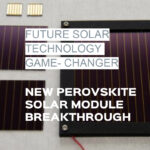
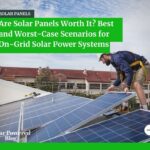
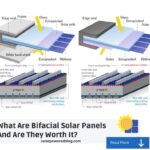

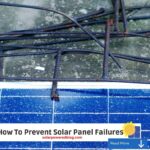
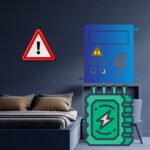

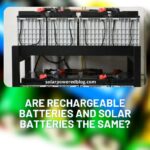
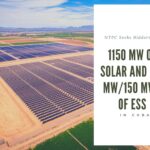

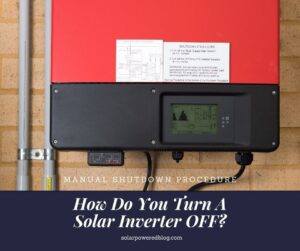
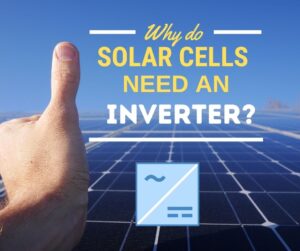

Hi,
Great blog!
I’ve recently moved house, and the new one has a solar system, the 16 panels are on the barn roof, which was connected directly to the grid. The payment by the electricity company was very small so, I terminated the contract which had 13 years left to run. The system is complete, and I’d like to make a new system, without batteries, and use the electricity generated during the day-time, to reduce my monthly bills. I, hopefully, won’t have to change/add too much, although I’m not sure if I can keep the inverter – a Schneider PVS NV1 2800 – as my house runs from 3-phase.
I’ll have to get someone in to do the work so, I’d like to be a little in the know before I do.
I’d be grateful for any pointers you could give me.
Best regards,
Al
Hi Alan,
Thank you for reading our blog post about the differences between on-grid and off-grid inverters. I am not sure what you mean about the contract which you terminated. Is it something of a leasing or power purchase agreement? You might also want to check this article about the differences between on-grid and off-grid PV systems.
If you want to install a new system without batteries, just make sure you know the regulations implemented by the local utility company where you want to connect your on-grid solar PV system. They might have net metering or feed-in-tariffs that you need to be aware of. Also, make sure you hire a professional solar contractor who will take care of your system’s permits, installation, and commissioning.
That’s it! I’m excited about your project!
Hi Super Human, thanks for getting back to me. I’ve taken your advice and spoken to a professional solar contractor, that’s why I’ve taken time to reply to you.
To put things simply (which I haven’t done in my first post), I have 16 panels on my barn roof which are linked to a Schneider grid inverter. I want to use the electricity generated by these panels (maybe with batteries) to help power my house. I live in France and don’t have a smart meter (Linky) installed, and the house is 3-phase. The professional, who I have spoken to via email, has said this:
“This situation is not straight forward. You have a single phase pv system, and a 3 phase house supply. It is not possible to split the current pv system across 3 phases, so it could only be connected to 1 phase. You will not know what is connected to what phase so it will be difficult to manage it from a self use point of view. The only thing in your favour is that you have a meter with a wheel. So if it was connected to one phase and you are not using it all it will effectively slow the wheel down or reverse it in some cases. Problem with this is if EDF* get wind of it they will switch you to a Linky as they don’t like this set up. Not sure I can get involved to be honest.”
* EDF are the electricity company
This answer seems weird to me, and I’m not sure if this guy is just fobbing me off. Wouldn’t the house be run off one phase, and the pv system would feed only that phase? I’d be extremely grateful for your thoughts on this?
Alan
Hi Super Human, thanks for getting back to me. I’ve taken your advice and spoken to a professional solar contractor, that’s why I’ve taken time to reply to you.
To put things simply (which I haven’t done in my first post), I have 16 panels on my barn roof which are linked to a Schneider grid inverter. I want to use the electricity generated by these panels (maybe with batteries) to help power my house. I live in France and don’t have a smart meter (Linky) installed, and the house is 3-phase. The professional, who I have spoken to via email, has said this:
“This situation is not straight forward. You have a single phase pv system, and a 3 phase house supply. It is not possible to split the current pv system across 3 phases, so it could only be connected to 1 phase. You will not know what is connected to what phase so it will be difficult to manage it from a self use point of view. The only thing in your favour is that you have a meter with a wheel. So if it was connected to one phase and you are not using it all it will effectively slow the wheel down or reverse it in some cases. Problem with this is if EDF* get wind of it they will switch you to a Linky as they don’t like this set up. Not sure I can get involved to be honest.”
* EDF are the electricity company
This answer seems weird to me, and I’m not sure if this guy is just fobbing me off. Wouldn’t the house be run off one phase, and the pv system would feed only that phase? I’d be extremely grateful for your thoughts on this?
Best regards,
Alan